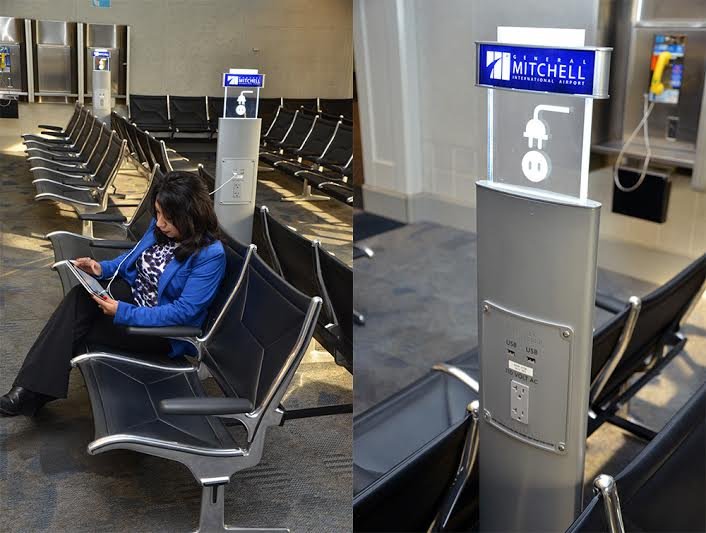
Imagine you’re de-boarding a flight and after pulling out your phone to switch it off of “airplane mode,” you realize you’re at 15 % battery. “Yikes,” you think, as you remember that you left your charger at home, and with your one-hour layover, you’re going to need some juice, so to speak. Luckily there’s a seat next to a column at a gate that has a USB outlet where you can grab a charge. But maybe you should reconsider this innocuous practice.
The transportation industry was the second-most attacked sector-a huge jump from its 10th place in 2017-according to in a recently-released study from the 2019 IBM X-Force Threat Intelligence Index that shows how cybercriminals are changing their techniques to hack devices.
What’s their secret? The low battery life on your phone.
“Plugging into a public USB port is kind of like finding a toothbrush on the side of the road and deciding to stick it in your mouth,” said X-Force Vice President Caleb Barlow in an interview with Forbes. “You have no idea where that thing has been.” Since USB connections can be modified by cybercriminals, malware can be downloaded or installed on your phone without your knowledge once you plug in.
Additionally, Barlow pointed out that a rogue cord itself could be hazardous: “If you see an Apple charging cord, you’re likely to grab it or just plug into it. But inside this cord is an extra chip that deploys the malware, so it charges your phone, but now I own your computer.”
“Plugging into a public USB port is kind of like finding a toothbrush on the side of the road and deciding to stick it in your mouth.”
Barlow recommends passengers [remember] to bring a portable power bank and plug it into a standard electrical outlet in the wall. A portable charger is also worth your money, and its convenience (you can take it anywhere, not just the airport) cannot be understated. Also, if your phone has a “Low Power Mode” make sure to turn it on and leave it on during your travels. “Airplane Mode” will also save you precious battery power. If you must, use your regular charger (bring it from home) and plug it into an electrical socket instead of a USB port, which can pass data. www.fodors.com



